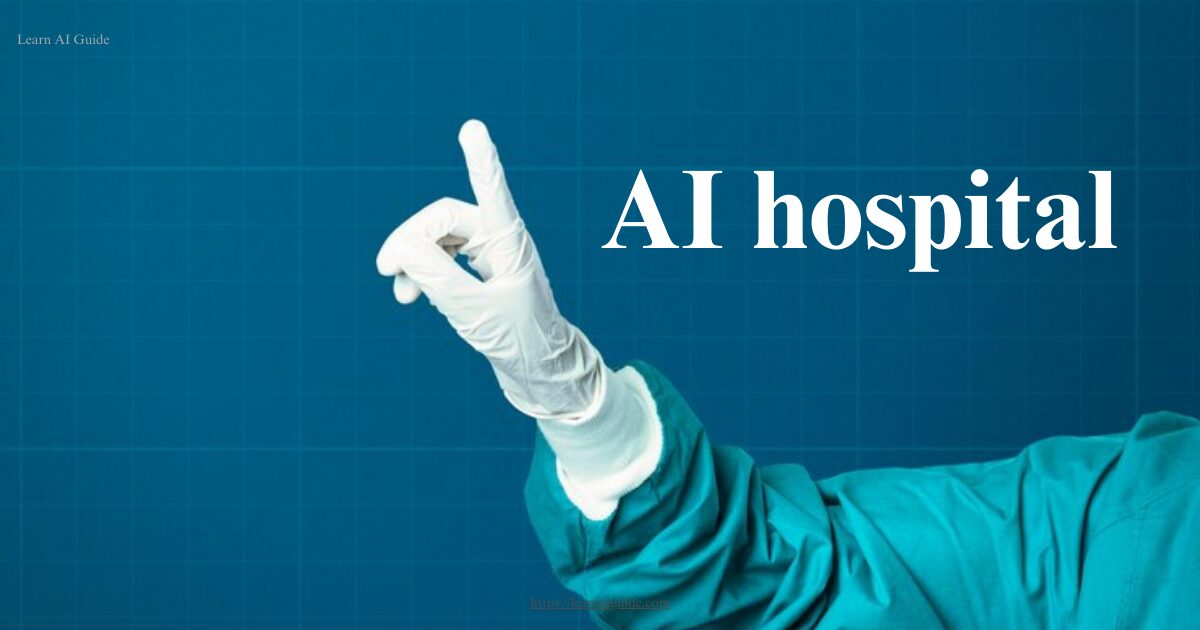Introduction
In a monumental stride towards the future of healthcare, China has unveiled the world’s first AI hospital, marking a significant milestone in medical innovation. World’s first AI hospital opens in China
This groundbreaking facility integrates cutting-edge artificial intelligence technologies to revolutionize patient care, diagnosis, and treatment.
As AI continues to reshape various industries, its application in healthcare promises to enhance medical precision, efficiency, and patient outcomes globally.
The Emergence of AI in Healthcare
Artificial Intelligence (AI) has emerged as a transformative force in the healthcare sector, catalyzing advancements that were once only imagined in science fiction.
Over the past decades, AI technologies have evolved rapidly, driven by breakthroughs in machine learning, natural language processing, and robotics.
advancements have paved the way for AI to assist doctors in diagnosing diseases, personalizing treatment plans, and even performing surgeries with unparalleled precision.
The Concept and Vision Behind the AI Hospital
The conception of the world’s first AI hospital in China was rooted in a visionary approach to healthcare. It aimed not only to leverage AI for clinical tasks but also to redefine the entire patient experience.
The visionaries behind this initiative sought to create a hospital where AI seamlessly integrates into every aspect of medical care, from initial diagnosis to ongoing treatment monitoring.
This holistic approach aims to improve medical accuracy, streamline operations, and ultimately, enhance patient outcomes on a monumental scale.
Infrastructure and Technology Integration
At the core of the AI hospital’s infrastructure lies a sophisticated network of AI-powered systems and technologies. These include virtual patient simulation models that mimic real-world medical scenarios, enabling doctors to practice complex procedures in a risk-free environment.
Such simulations not only enhance doctors’ skills but also contribute to better patient care by minimizing procedural risks and optimizing treatment strategies.
AI-Driven Healthcare Solutions
The implementation of AI in the hospital extends beyond simulations to encompass a spectrum of AI-driven healthcare solutions.
AI-powered diagnostic tools analyze medical images and patient data with unprecedented accuracy, aiding doctors in early detection of diseases such as cancer or cardiovascular conditions.
Moreover, robotic surgical systems, guided by AI algorithms, perform intricate surgeries with precision that surpasses human capabilities, leading to quicker recovery times and reduced post-operative complications.
Benefits and Impact of AI in Healthcare
The integration of AI in healthcare brings forth a multitude of benefits that resonate across medical practice and patient care.
Improved diagnostic accuracy ensures timely interventions and personalized treatment plans tailored to individual patient needs.
This not only enhances patient outcomes but also optimizes resource allocation within healthcare facilities, leading to cost-effectiveness and operational efficiency.
Challenges and Ethical Considerations
Despite its transformative potential, the adoption of AI in healthcare poses significant challenges and ethical considerations. Concerns over data privacy and security remain paramount, as AI systems rely heavily on vast amounts of sensitive patient information.
Furthermore, the ethical implications of AI decision-making in medical settings raise questions about accountability and transparency, necessitating robust regulatory frameworks to safeguard patient welfare and uphold ethical standards in AI-driven healthcare.
Prospects and Global Implications
Looking ahead, the inauguration of the world’s first AI hospital in China sets a precedent for global healthcare innovation. As other nations observe its impact, there is growing anticipation for the replication of AI hospital models worldwide.
The future promises expanded applications of AI in telemedicine, remote patient monitoring. And predictive analytics, thereby transforming healthcare delivery on a global scale.
By embracing AI responsibly and collaboratively, healthcare systems can navigate towards a future. Where medical excellence and technological innovation converge to benefit patients worldwide.
Conclusion
In conclusion, the establishment of the world’s first AI hospital in China signifies a monumental leap towards the future of healthcare. By harnessing the power of AI, this pioneering institution not only enhances medical capabilities. But also redefines standards of patient care and operational efficiency.
As AI continues to evolve, its integration into healthcare systems worldwide holds the promise of a healthier, more resilient future for humanity.
With continued innovation and ethical stewardship, AI will undoubtedly remain. At the forefront of shaping the next era of global healthcare. World’s first AI hospital opens in China
World’s first AI hospital opens in China that’s all for today, For More: https://learnaiguide.com/what-is-ai-chatbot-introduction-and-example/
